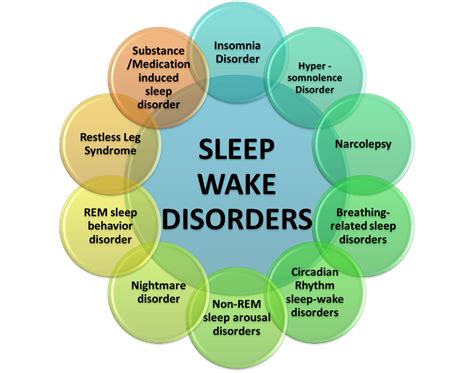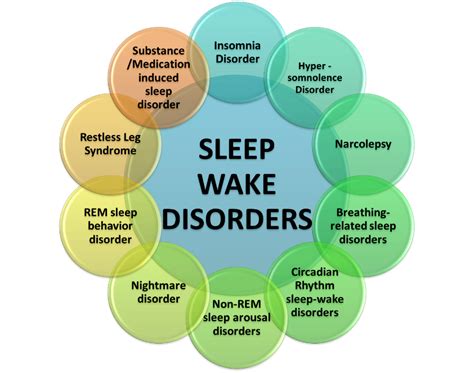

Sleep disorders affect millions of people worldwide, causing difficulty falling asleep or staying asleep. Learn about symptoms and treatments here.
Do you often find yourself staring at the ceiling, tossing and turning in bed, unable to drift off to sleep? Or do you wake up feeling exhausted even after a full night’s rest? If so, you may be one of the millions of people who suffer from sleep disorders. These conditions can range from mild to severe, and they can have a profound impact on daily life. From insomnia to sleep apnea, there are many different types of sleep disorders that can disrupt our rest and leave us feeling drained. However, with the right diagnosis and treatment, it is possible to overcome these challenges and finally get the restful sleep we need.
Daftar Isi
Sleep Disorders: Understanding the Basics
Sleep is a fundamental need that every human being requires to function properly. However, millions of people suffer from sleep disorders that can affect their overall health and wellbeing. Understanding the basics of sleep disorders is essential to address these issues.
What are Sleep Disorders?
Sleep disorders are a group of conditions that affect the quality, timing, and duration of sleep. These conditions can be caused by various factors such as medical issues, lifestyle choices, environmental factors, and psychological conditions.
Types of Sleep Disorders
There are over 80 types of sleep disorders, but some of the most common ones include:
- Insomnia
- Narcolepsy
- Restless Leg Syndrome
- Obstructive Sleep Apnea
- Parasomnias
Effects of Sleep Disorders
Sleep disorders can have a significant impact on a person’s life. These effects may include:
- Fatigue and tiredness
- Irritability and mood swings
- Difficulty concentrating
- Memory problems
- Decreased productivity
- Increased risk of accidents and injuries
Causes of Sleep Disorders
Medical Conditions
Several medical conditions can cause sleep disorders, such as:
- Chronic pain
- Heart disease
- Thyroid disorders
- Depression and anxiety
- Neurological conditions
Lifestyle Choices
Poor lifestyle choices can also lead to sleep disorders, such as:
- Irregular sleep schedule
- Excessive caffeine and alcohol consumption
- Sedentary lifestyle
- Poor diet
- Smoking
Treatment for Sleep Disorders
Lifestyle Changes
The first step in treating sleep disorders is making lifestyle changes. These changes may include:
- Establishing a regular sleep schedule
- Reducing caffeine and alcohol intake
- Incorporating exercise into daily routine
- Improving diet and nutrition
Medical Treatment
If lifestyle changes are not effective, medical treatment may be necessary. This treatment may include:
- Prescription medication
- Cognitive-behavioral therapy
- Continuous positive airway pressure (CPAP) therapy
- Surgery for severe cases of obstructive sleep apnea
Conclusion
Sleep disorders are a common problem that affects millions of people worldwide. While the causes and symptoms may vary, understanding the basics of these disorders is essential to identify and address these issues. By making lifestyle changes and seeking medical treatment when necessary, individuals can improve their quality of sleep and overall health.
Introduction: Sleep Disorders Affect Millions WorldwideSleep disorders are a prevalent and often overlooked health concern that affects millions of people worldwide. These conditions can cause a range of physical, mental, and emotional consequences, including daytime fatigue, irritability, and impaired concentration. In this article, we will explore some of the most common sleep disorders and their effects on individuals.Insomnia: Difficulty Falling or Staying AsleepInsomnia is a sleep disorder that affects about 30% of adults, making it the most common sleep disorder. It entails difficulty falling or staying asleep, leading to daytime fatigue, irritability, and impaired concentration. Chronic insomnia, which lasts for more than three months, is linked to increased risks of depression, anxiety, and other health issues, such as obesity and hypertension. Treatment options for insomnia include cognitive-behavioral therapy, medications, and lifestyle changes.Sleep Apnea: Breathing Interruptions During SleepSleep apnea is a disorder characterized by breathing interruptions during sleep, leading to disrupted sleep, excessive snoring, and lethargy during the day. It affects about 25 million Americans, and many are unaware that they have the condition. Chronic sleep apnea is linked to hypertension, diabetes, and cardiovascular issues. Treatment options for sleep apnea include continuous positive airway pressure (CPAP) machines, oral appliances, surgery, and lifestyle changes.Narcolepsy: Inability to Regulate Sleep-Wake CyclesNarcolepsy is a chronic sleep disorder that entails an inability to regulate sleep-wake cycles, leading to irregular, sudden bouts of sleep. It affects about 1 in 2,000 individuals and can lead to severe consequences such as cataplexy, hallucinations, and sudden sleep attacks. Treatment options for narcolepsy include medications, lifestyle changes, and behavioral therapy.Restless Legs Syndrome: Uncomfortable Sensations in the LegsRestless legs syndrome (RLS) is a neurological disorder that causes uncomfortable sensations in the legs, leading to an urge to move them, especially at night. It affects about 10% of adults, and chronic RLS is linked to sleep deprivation and impaired quality of life. Treatment options for RLS include medications, lifestyle changes, and iron supplements.Delayed Sleep-Wake Phase Disorder: Shifted Sleep CycleDelayed sleep-wake phase disorder is a circadian rhythm disorder that affects the timing of sleep, leading to a shifted sleep cycle. It is common among teenagers, young adults, and night owls, and it can lead to daytime lethargy and sleep deprivation if left untreated. Treatment options for delayed sleep-wake phase disorder include light therapy, melatonin supplements, and behavioral therapy.Shift Work Sleep Disorder: Circadian Rhythm DisruptionShift work sleep disorder is a circadian rhythm disorder that affects individuals who work non-traditional hours, leading to a disruption in their internal clock. It affects about 10% of shift workers and can cause daytime sleepiness, fatigue, and reduced alertness. Treatment options for shift work sleep disorder include light therapy, medications, and lifestyle changes.Sleepwalking: Activities During SleepSleepwalking is a parasomnia disorder that entails engaging in activities such as walking or eating while asleep. It affects about 15% of children and can lead to physical injuries, sleep disruption, and anxiety for both the patient and their family. Treatment options for sleepwalking include medication and lifestyle changes.REM Sleep Behavior Disorder: Loss of Muscle RelaxationREM sleep behavior disorder (RBD) is a parasomnia disorder that entails the loss of muscle relaxation during REM sleep, leading to physical movements such as kicking, punching, or yelling. It affects about 0.5% of adults, and chronic RBD is linked to neurodegenerative diseases such as Parkinson’s. Treatment options for RBD include medication and lifestyle changes.Conclusion: Seeking Diagnosis and Treatment for Sleep DisordersSleep disorders can significantly impact an individual’s quality of life, and early diagnosis and treatment are critical in managing their symptoms and minimizing adverse effects. If you suspect a sleep disorder, seek a diagnosis from a qualified sleep specialist who can help you find effective therapies and lifestyle changes to improve your sleep. With the right diagnosis and treatment plan, many individuals can regain restful, restorative sleep and improve their overall health and well-being.
In recent years, there has been increasing awareness about the prevalence of sleep disorders and their impact on health and wellbeing. While some people may view sleep disorders as a minor inconvenience, they can have serious consequences if left untreated.
Pros of Sleep Disorders:
- Help identify underlying health issues: Many sleep disorders are indicative of underlying medical conditions such as sleep apnea or restless leg syndrome. Diagnosis of these sleep disorders can lead to early detection and treatment of these conditions.
- Increased awareness: As more people become aware of the seriousness of sleep disorders, more research is being done to understand their causes and treatment options. This increased awareness can lead to better treatment outcomes and improved quality of life for those affected.
- Improved diagnosis and treatment: Advances in technology and medical research have led to more accurate diagnosis and effective treatments for sleep disorders. This means that individuals with sleep disorders can receive targeted treatment plans tailored to their specific needs.
Cons of Sleep Disorders:
- Reduced productivity: Sleep disorders can lead to daytime fatigue, which can affect work performance and productivity. This can have negative consequences for both the individual and their employer.
- Increased risk of accidents: Sleep disorders can impair cognitive function, leading to an increased risk of accidents while driving or operating heavy machinery.
- Impact on mental health: Chronic sleep deprivation can lead to anxiety, depression, and other mental health issues. This can have a negative impact on overall quality of life and wellbeing.
In conclusion, while there are some potential benefits to identifying and treating sleep disorders, it is important to recognize the potential negative consequences they can have on quality of life and overall health. Seeking professional help and adopting healthy sleep habits can help mitigate these negative effects.
Sleep is an essential aspect of human life that plays a crucial role in our overall well-being. It allows the body to rest and repair, and it also helps to maintain cognitive and emotional functions. However, millions of people worldwide struggle with sleep disorders that affect their quality of life.
There are several types of sleep disorders, including insomnia, sleep apnea, restless leg syndrome, narcolepsy, and parasomnia. These disorders can cause daytime fatigue, mood swings, poor concentration, and memory loss. They can also lead to more severe health conditions such as heart disease, stroke, and depression.
If you suspect that you have a sleep disorder, it is crucial to seek medical attention. Your doctor can diagnose the condition and recommend appropriate treatment options. Lifestyle changes such as regular exercise, avoiding caffeine and alcohol, and maintaining a consistent sleep schedule can also improve your sleep quality.
Remember, getting enough quality sleep is essential for your health and well-being. Don’t ignore the signs of a sleep disorder, and seek help if necessary. By taking care of your sleep, you’re taking care of yourself.
Video sleep disorders
People Also Ask about Sleep Disorders:
1. What are the common sleep disorders?- Insomnia- Sleep Apnea- Restless Leg Syndrome- Narcolepsy- Sleepwalking- Nightmares2. What are the symptoms of sleep disorders?- Difficulty falling asleep or staying asleep- Snoring loudly or gasping for air during sleep- Feeling sleepy during the day- Waking up with headaches or a dry mouth- Feeling irritable or depressed- Experiencing leg cramps or discomfort during sleep3. How are sleep disorders diagnosed?- Medical history and physical exam- Sleep study (polysomnography)- Blood tests to rule out underlying medical conditions4. How are sleep disorders treated?- Lifestyle changes such as regular exercise and avoiding caffeine and alcohol before bedtime- Medications such as sleeping pills or antidepressants- Therapy such as cognitive-behavioral therapy or relaxation techniques- Use of devices such as a continuous positive airway pressure (CPAP) machine for sleep apnea5. Can sleep disorders be prevented?- Maintaining a regular sleep schedule- Creating a relaxing bedtime routine- Avoiding stimulating activities before bedtime- Keeping the bedroom cool, dark, and quiet- Limiting caffeine and alcohol intake- Managing stress levelsIn conclusion, sleep disorders can greatly affect a person’s quality of life and should not be ignored. Seeking medical attention and making lifestyle changes can greatly improve sleep health.






